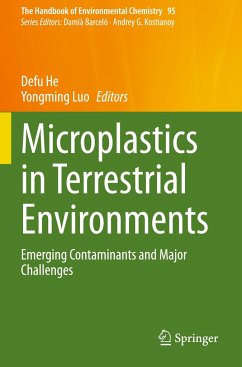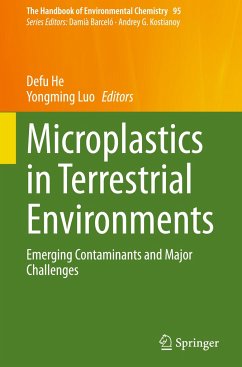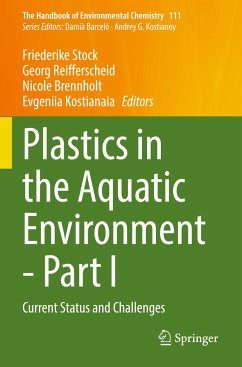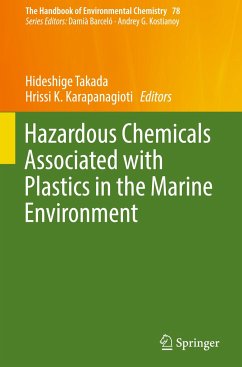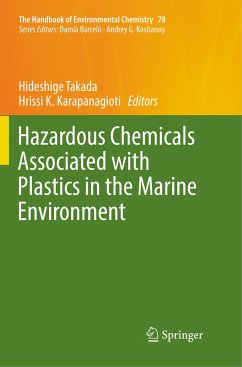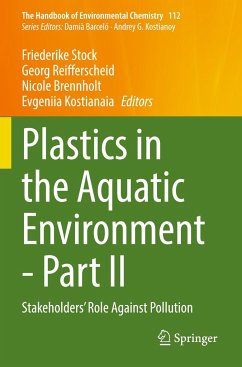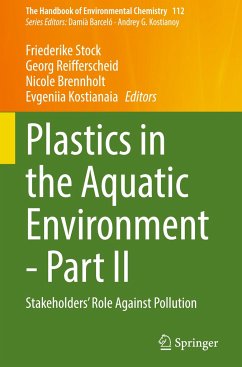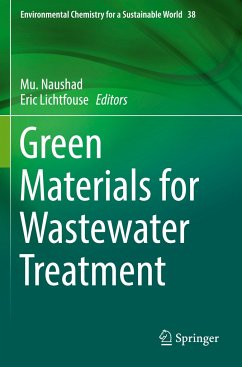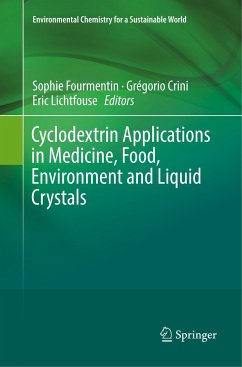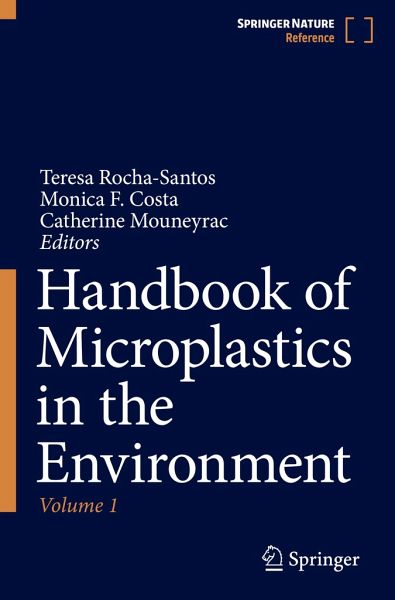
Handbook of Microplastics in the Environment
Versandkostenfrei!
Versandfertig in 1-2 Wochen
420,99 €
inkl. MwSt.

PAYBACK Punkte
210 °P sammeln!
This reference work presents an authoritative review of microplastics as vectors of environmental contaminants and provides a comprehensive coverage of their ecotoxicological and toxicological effects. Divided into four sections, this book outlines the current analytical techniques and applications for sampling, processing analysis, and data reporting of microplastics pollution in the environment, explores microplastics degradation and interaction with chemical pollutants, discusses the fate and behaviour of microplastics in the environment, and provides valuable insights about prevention, reg...
This reference work presents an authoritative review of microplastics as vectors of environmental contaminants and provides a comprehensive coverage of their ecotoxicological and toxicological effects. Divided into four sections, this book outlines the current analytical techniques and applications for sampling, processing analysis, and data reporting of microplastics pollution in the environment, explores microplastics degradation and interaction with chemical pollutants, discusses the fate and behaviour of microplastics in the environment, and provides valuable insights about prevention, regulation and remediation of microplastics pollution.
Written by interdisciplinary expert academics and practitioners, this reference work will appeal to a wide readership of students, researchers and professionals interested in this field, including marine scientists, environmental scientists, analytical chemists, organic chemists, biochemists, biologists, polymer scientists, and toxicologists.
Written by interdisciplinary expert academics and practitioners, this reference work will appeal to a wide readership of students, researchers and professionals interested in this field, including marine scientists, environmental scientists, analytical chemists, organic chemists, biochemists, biologists, polymer scientists, and toxicologists.



